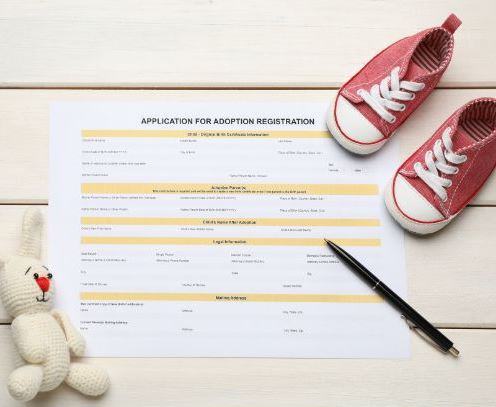Updating the Will?
How Do I Update My Will?
Updating a Will is a crucial task that individuals should undertake every few years to ensure that their final wishes are accurately reflected.
As people acquire new assets like cars, property or valuable items over time, it's crucial to ensure these are include in the Will. Regular updates ensure that the Will covers all current assets and reflects a person's changing priorities and preferences.
Reviewing and updating your Will maintains ensures harmony and clarity among family members and beneficiaries. Considering changes in relationships, finances, and ownership of assets, individuals can prevent disputes or confusion that might arise later after they have died. By staying on top of their Will, people can give their loved ones a clear plan on how thy would like their assets distributed.
Here we will provide guidance on how to update a Will, emphasising the importance of reviewing and revising this legal document to ensure clarity and accuracy.
Why Update Your Will
Updating your Will is crucial for accurate estate planning, considering life events like marriage, divorce, or the birth of a child. The Will is a legal document that outlines asset distribution after your death, guiding your family members and the court to honour your intentions.
Given life's constant changes, it's essential to update your Will every few years to ensure it aligns with your current circumstances and intentions. These include:
Marital Status Changes as a Major Life Event

Marriage, civil partnership, or divorce significantly impacts estate planning, necessitating changes to your Will. Updating your Will after marriage or entering into a civil partnership allows inclusion of your new spouse or civil partner as a beneficiary and make relevant provisions, while after divorce, you may want to remove your ex-spouse or civil partner to avoid unintended consequences.
Birth or Adoption of a Child

Having a child prompts an update to your Will to designate them as a beneficiary. Ensuring provisions for your child in your Will protects their future and ensures all the assets are distributed according to your wishes.
Financial Situation Changes
Changes in your financial status, such as acquiring significant property and possessions, or facing financial difficulties, require updates to your Will. Reflecting your current financial situation in your Will ensures appropriate property distribution and care for your loved ones.
By keeping an up to date version of your Will, you can prevent issues while making sure your family or next of kin receive and benefit from the care you have intended for them. Your new Will represents your current circumstances and aspirations.
Making Amendments to Your Will
Modifying a Will requires careful consideration and adherence to legal rules to accurately reflect changes in an individual's circumstances or desires. When it becomes necessary to make amendments to or update a Will, it is important to approach the task with seriousness and diligence.
Here's a guide on how to amend your Will effectively:
1. Review Your Current Will
Carefully examine your current Will to identify common mistakes and the specific changes needed, such as updating beneficiaries or altering asset distribution.
2. Consult a Solicitor

Creating a Will ensures that your possessions and assets are allocated in accordance with your final intentions. Engaging a solicitor reduces the possibility of common mistakes, ensuring your an accurate and valid Will. Solicitors, with their extensive legal knowledge, handle intricate matters like inheritance tax and trusts, asking relevant questions to guarantee your Will is straightforward.
3. Why Codicils May Not Be Ideal
Will amendments known as codicils may seem like a practical way to make changes, but they come with risks. Since they are easily lost or forgotten and may lead to confusion or disagreements regarding the intended intentions, we do not advise utilising them. For your instructions to be clear and enforceable, it is best to review and alter your Will through the appropriate legal processes.
4. Creating a New Will
It is always best to create a new Will when making major modifications to an existing one. Preparing a new Will instead of depending on codicils for significant changes, such changing beneficiaries or restructuring your estate plan, is highly recommended. By drafting a new Will, you can guarantee clarity and prevent any issues that may arise from depending solely on revisions.
A key aspect to consider is how people who are affected by significant changes view them. For example, excluding someone from your Will through a codicil may result in controversy as it creates a visible record of the exclusion. On the other hand, a new Will essentially replaces the old one, offering a fresh start free from the possibility of conflicting scrutiny or possible challenges from those left out.
Ensuring Clarity and Accuracy in Your Updated Will
Ensuring clarity and accuracy in an updated Will involves thoroughly reviewing the document and making necessary adjustments to reflect an individual's current circumstances and desires, with the guidance of a knowledgeable lawyer specialising in estate planning.
1. Review Existing Will
Carefully examine your current Will to identify outdated or incorrect information, such as beneficiaries, assets, or personal circumstances. Thorough review allows you to pinpoint areas needing modification to accurately reflect your current intentions.
2. Make Clear and Unambiguous Changes
Clearly state desired changes using straightforward language, avoiding vague terms to minimise potential confusion or disputes among your beneficiaries. Specific instructions, such as naming beneficiaries and providing clear distribution plans, help ensure clarity and lessen ambiguity in the updated Will.
3. Ensure Accuracy
Verify all relevant information, including names, addresses, and asset identification, to prevent potential legal complications. Errors or omissions in your Will could lead to disputes or challenges to its validity, highlighting the importance of accuracy in the updating process.
4. Consult a Professional Will Writer
Use the services of a certified, qualified Will writing company that has many years of providing Will writing services to guarantee adherence to legal standards and alignment with your intentions. Professional Will writers offer tailored advice, manage intricate estate issues effectively, and ensure your Will is legally robust and successful in fulfilling your desired outcomes.
Frequently Asked Questions
What is the process for executing a Will after it has been updated?
The process for executing a Will after it has been updated involves several steps. These include ensuring the Will is valid, appointing an executor, identifying and notifying beneficiaries and charities, paying debts and taxes, and distributing assets accordingly.
How often should I review and update my Will?
Maintaining an up-to-date version of your Will requires periodic review and updates. It is advised to review your own Will every few years or when significant life events occur to ensure it aligns with your current wishes and circumstances.
Can I update my Will without the help of a lawyer?
Updating a Will without the assistance of a lawyer is possible. However, consulting a solicitor ensures that the Will complies with legal requirements and accurately reflects your message.
What happens if I pass away before updating my Will?
If a person passes away before updating their Will, their estate will be distributed according to the terms of their previous Will or, if there is no Will, according to the laws of intestate succession.
What are the potential consequences of not updating my Will regularly?
Failing to update a Will regularly can result in outdated provisions, potential disputes among beneficiaries, unintended distribution of assets or money, and failure to account for changes in personal circumstances or tax laws.
Conclusion
Maintaining an up to date version of your Will is crucial to accurately reflect your desires, especially considering significant life events such as marriage, divorce, or the arrival of children. By periodically reviewing and updating your Will, you can ensure clarity and prevent possible misunderstandings or conflicts, thereby documenting your ultimate intentions correctly. This act provides a sense of accomplishment and reaffirms your authority over your legacy, enabling you to tailor it to your changing circumstances.

